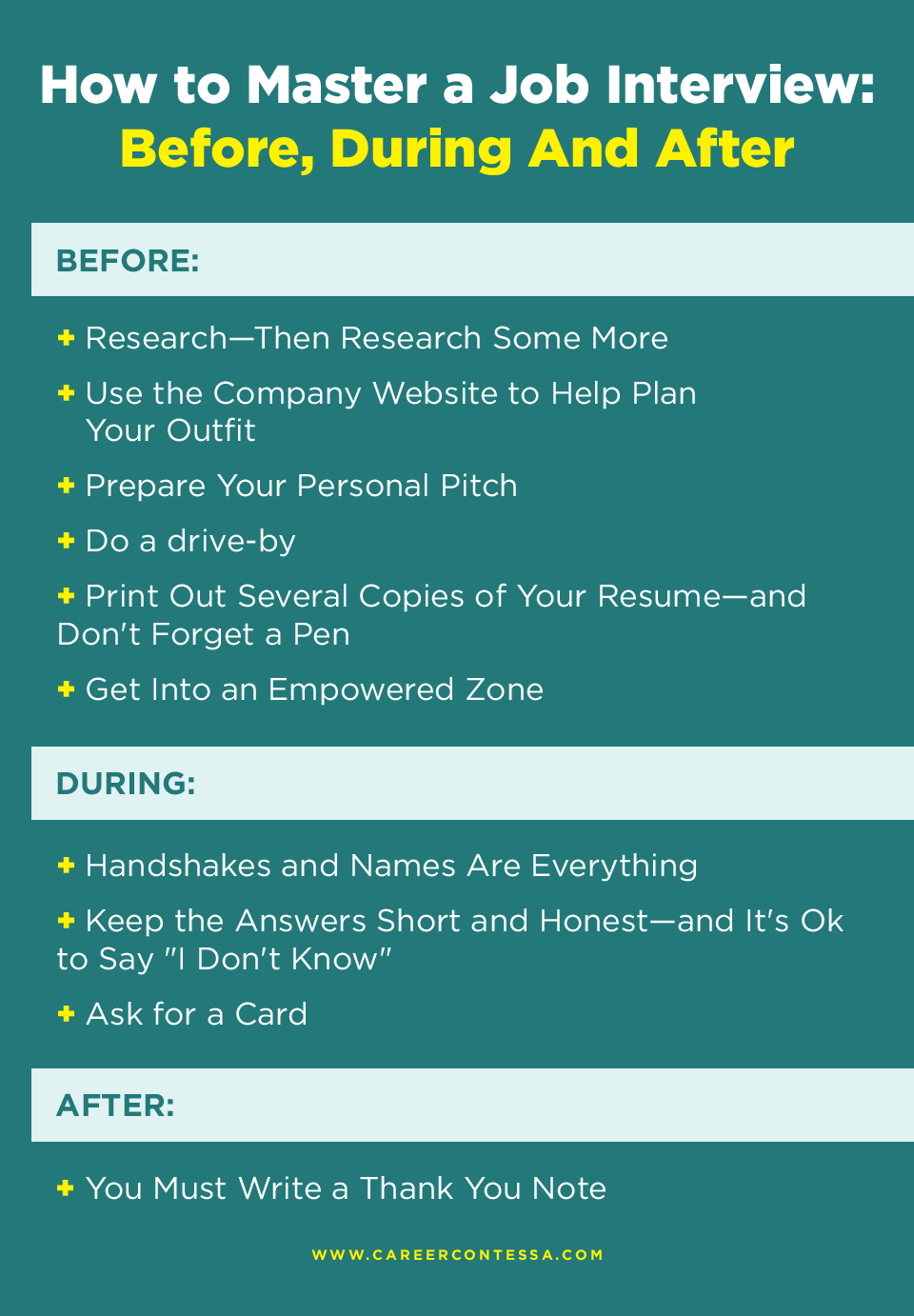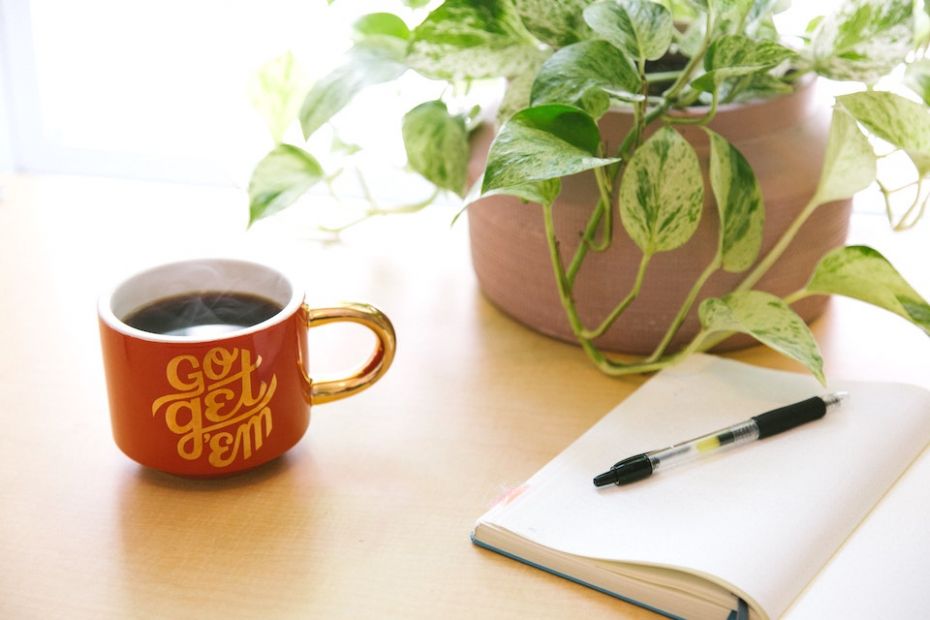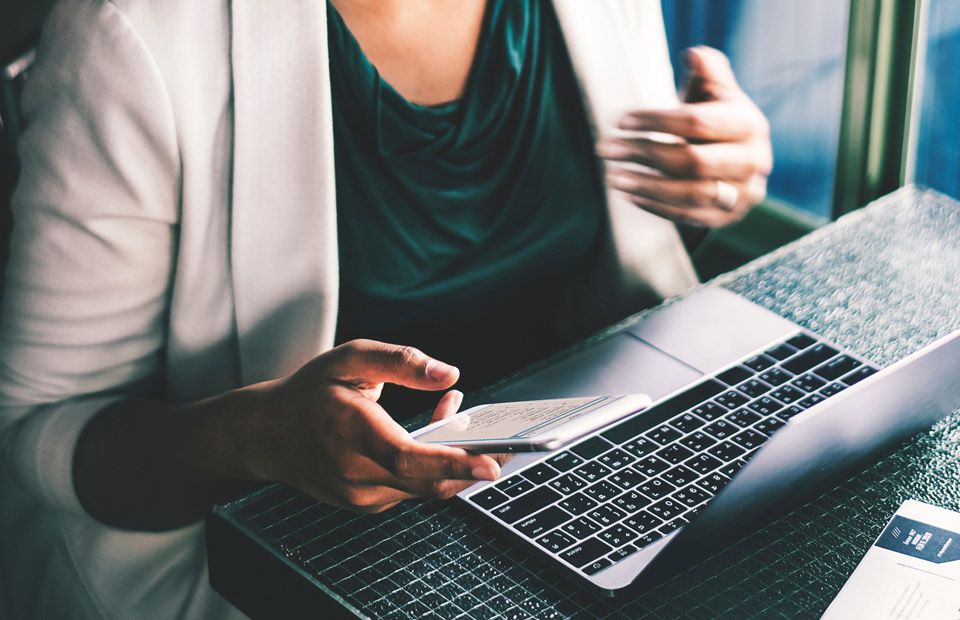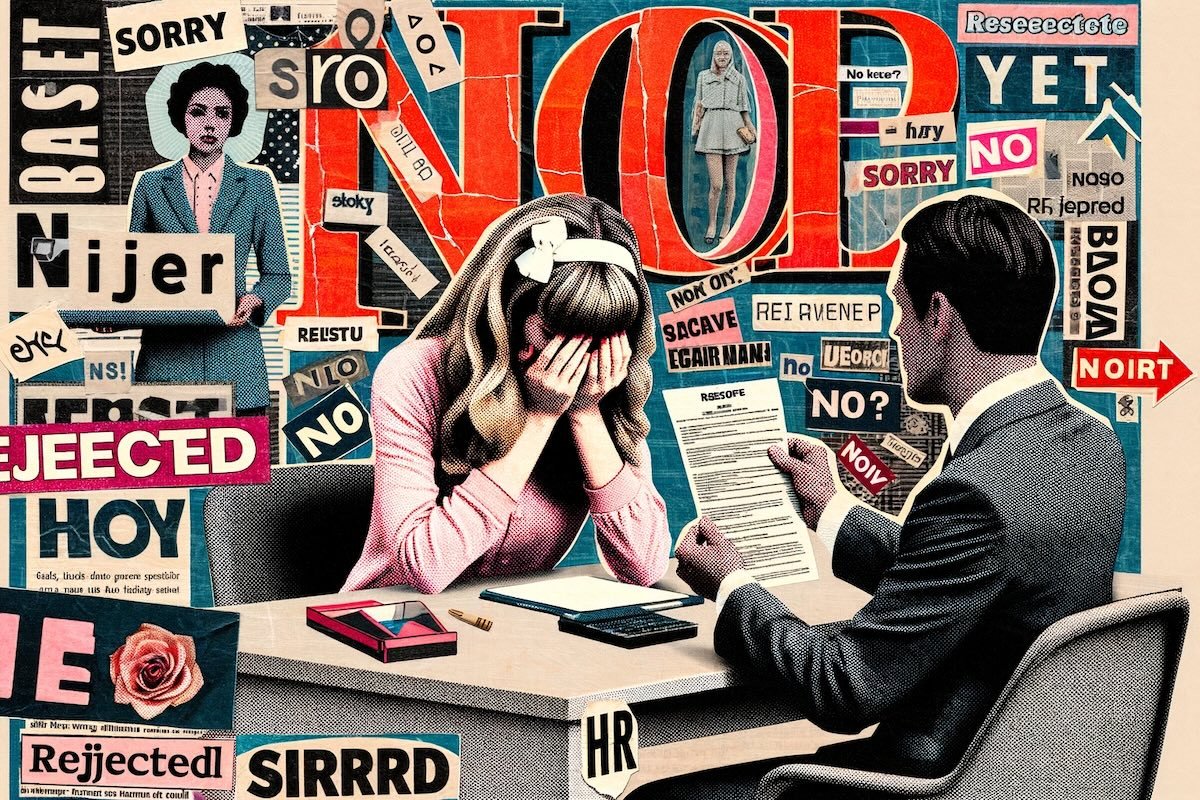Once and for all: the complete guide to nailing your next interview.
Let’s face it: job hunting—however rewarding in the end—can be a stressful experience. Whether you’re scouring job boards or networking like crazy, it’s tough to feel let down…until you get the interview.
Scoring an interview is the first step toward getting the job of your dreams, so it’s important to do as much preparation as possible to stand out. I’ll lay out the dos and don’ts to consider before the interview, during the interview, and after the interview—all from my own personal experience.
Table of Contents
These tips were created with an in-person interview in mind but you can also adapt them for a phone interview, remote interview, or virtual video interview.
How to Prepare: Before The Job Interview
Research the Company
It’s super important to properly research the company you’re interviewing with beforehand. Why? Because it shows them you already know what they’re all about and that you’re committed to pursuing the position.
Take some time to browse through their company website and careers page. Look for when the company was established, their mission statement, who the CEO is and their other leadership, what their company culture is like—anything you think would be valuable to know during the interview and help you craft your interview answers.
You should also know about any recent news or PR events the company has had. Type the name of the company into a Google search bar and click "enter." Then hit "news," and you'll see any recent mentions of the company in the news.
You can also ask this question to ChatGPT and it will summarize recent news events for you:
"Tell me what is the latest news is on [X] company" or "Tell me 5 recent achievements of [X] company" and see what it spits out.
I also look up where my interviewer(s) went to school—if you went to the same school, that’s already something you will have in common—and the rest of their career background on LinkedIn. Find any commonalities with your interviewers, and don't be afraid to let them know that you prepped for this job interview by looking them up on LinkedIn!
Research the Company's Products, Services, And/Or Clients
You should know what the company does, what they sell, who their clients are, etc. And if you can test them out ahead of time, like subscribing or trying a product, even better. It's super impressive when a candidate has done allll their pre-interview homework. The interviewer might even ask for your feedback to make sure you're not lying!
Research The Company's Culture
This might be a little tricky but research whatever information you can find about their company culture. Review their careers page, check the company out on social media like Instagram, Twitter, and Facebook. And you can even check out sites like Glassdoor.com and InHerSight.com to see what the employees are anonymously sharing.
Lastly, if you know someone at the company already, see if you can have a quick informational interview with them prior to your interview to learn more about the company. This will be extra handy in your interview preparation because they might even give you direct interview tips!
Examine The Job Description
Review the
job description in detail! Have a thorough understanding of what skills the job is asking for and the responsibilities. Even better, go through and make a list of how your career goals and experience relate to what the job is looking for.
Write out why you applied for the job and why you're specifically interested in this role. I know this is a lot of homework but it will really help you crystalize your reasons and better sell the recruiter and/or hiring manager during the interview. Plus, you can have some time to consider what recent accomplishments you have that are closely tied to what the job is looking for!
Know What Makes You Qualified
Using the job description, go through each item it list and write out what qualification you have. Consider adding notes with examples of work that you could share or tell a
story around if needed. Having a few stories ready will help you answer any behavioral interview questions
Use the Company Website to Help Plan Your Interview Outfit
Another important factor to take into consideration with your interview skills is what you are going to wear. By browsing through the company website, you’ll probably get a sense of the company culture, which can help you determine how you should dress.
If you are applying for a position at a financial firm, for example, you might want to wear something more formal, like a business suit. However, if you are applying for a more creative position, you might want to wear something more—for lack of a better word—creative.
Sometimes, you'll find yourself unsure about the company culture or dress code. In this case, it doesn't hurt to ask your contact or HR representative for recommendations. Whenever you are unsure about what to wear, it’s always better to err on the side of overdressed. You don't want your outfit to cause distractions from all the important information you're sharing.
Prepare Your Personal Pitch
The interviewer will usually start by asking you to tell them about yourself. This is your time to shine so make it count. Craft an introduction that's brief and to the point—you don’t want to bore them with unnecessary details or filler words.
Practice Common Interview Questions
Consider a Mock Interview With a Friend
Especially if you're nervous or lack some confidence when it comes to job interviews, I highly recommend having a
mock job interview with a friend. I did a practice interview in college and it was so helpful. Plus, if you videotape it—as I did—you can watch any nervous body language you do or what happens when you get stumped by the
salary expectations questions. Trust me—I'm speaking from experience!
Have Your Own Questions Ready
Almost all interviews end with
"Do you have any questions for me?" You may find that you naturally have questions based on your conversation during the interview, but play it safe by preparing some in advance.
If you're still stumped on what to ask, here are
40+ smart questions to ask in your next interview.
Lastly, I like to bring a notepad with my questions. This way if I forget anything during my interview, I can reference the notes I wrote ahead of time.
Do a Drive-By
If you're unfamiliar with the interview location, drive there the day before so you can familiarize yourself with the route. For the day of the interview, give yourself plenty of time to get there! It’s always better to be 20 minutes early than 20 minutes late.
Print Out Several Copies of Your Resume—and Don't Forget a Pen
As far as what to bring to your interview, always come with a few copies of your resume, a pen and paper, and some printed copies of your previous work or a portfolio (if applicable).
Some other ideas include a mirror for quick touch-ups between interviews, a snack in case the interviews run long, a bottle of water for obvious reasons, and an iPad if you want to share examples of your work digitally.
Bring a Cheat Sheet
I’m sure you’ve been told to do your research before interviewing for the job. But I’ll be the first to admit, despite all my research, when I’m nervous, I forget my eloquent statements about why I'm perfect for the job. And that is why I bring along a cheat sheet.
Here's how it works: I make bullets about the points I want to cover when speaking to my interviewer and write them on the same page where I take my notes. That way, if I feel I’m stumbling or at a loss for words, I have a few lines to get me back on track. Furthermore, the preparation itself works as a security blanket for me. I innately feel more confident with my cheat sheet in hand.
Bring Business Cards
In the event that you arrive and do meet more people from the team than you were expecting, don’t hesitate to either hand those people your business card (if the timing feels appropriate) or leave some along with copies of your resume at the end. Tell your interviewer that you’re happy to answer any questions anyone from the team has and that they can contact you at the address on your card. While this might not happen, better to be prepared!
Get Into an Empowered Zone
You should already be in interview mode when you arrive. Walk in with a smile on your face to show that you are excited to be there. Don’t forget to take a big deep breath—that will definitely help calm your nerves—and maybe even listen to a couple of minutes of bass-heavy music before getting out of your car. It'll help you feel more powerful.
How to Prepare: During The Job Interview
Treat Everyone You Meet With Respect
From the valet to the receptionist to the recruiter, treat everyone with kindness and respect. This should be a no-brainer.
Handshakes and Names Are Everything
While the length of the interview will depend on how many people you're speaking with, assume you'll be there for at least an hour. When your interviewer greets you, give them a nice firm handshake. It can be difficult to remember names (especially if you are meeting with multiple people!).
Try repeating a name immediately after the introduction. For example, when the interviewer says “Hi Samantha, I’m Mike,” respond with “Hi
Mike, nice to meet you.” This also helps create a
great first impression.
Turn Your Phone Off
Don't even be tempted by the distraction of your phone. If you need to have it on for emergencies then turn off the ringer and leave it on the table but share that information with the interviewer upfront.
Make Eye Contact
One of the best ways to communicate
confidence is by making eye contact. You don't need to do a deep stare. Find the happy medium (eye contact about 70 percent of the time) that will demonstrate your emotional intelligence without scaring anyone away.
Consider Your Body Language + Tone
Body language and tone of voice can communicate a lot. And it goes back to confidence. Watch that you don't twirl your hair, slouch, fiddle, or slump in your chair. Check your posture, pull your shoulders back, and keep you chin up
Jot Down Any Notes
After I complete an interview, I like to take a few notes about what the interviewer and I discussed, their name, role, and any other details like an interesting interview question. This comes in handy when you have lots of interviews and for what happens after the next job interview.
If you want to take notes during the interview, that's fine too. I would just recommend letting the interviewer know you'll be doing that but don't take constant notes.
Keep the Answers Short and Honest—and It's Ok to Say "I Don't Know"
If you are unsure of an answer to a question, it’s okay to say that you don’t know. It’s counterintuitive, but trust me—they would rather have you be honest than get off track with inaccurate answers. The most important thing to remember during the interview is to be yourself. Be as honest as you can, and they will respect you for that.
Keep Negativity Away
Even if you
hate your boss and your
workplace is toxic, now is not the time to go all negative and spill the tea. Try to spin anything negative into a more productive conversation.
Ask The Interviewer Questions
Don't forget to actually ask questions! Even if you cover a lot of ground in your interview and think you don't have any questions to ask, don't skip this! Interviewers look for the best candidate and that's usually the person who is curious, engaged, and has questions for them!
Ask for a Card
Once the interview is over, make sure to say thank you and ask for their business card. This way you'll have their contact information for later.
Thank The Interviewer + Ask About Next Steps
Verbally thank the interviewer for their time and ask about the next steps in the interview process. You can also ask them about their hiring timelines, which will help you gauge when to follow up.
How to Prepare: After The Job Interview
You Must Write a Thank You Note
Many people think they don’t have to do anything after the initial interview. Wrong. Always, always, always send a thank-you note, whether it’s handwritten or through email (preferred).
Employers will really appreciate that you took the time to do that, and that’s why it’s important to get their business card after your interview.
It doesn’t have to be a long note—just something to say thank you for their time and something you like about the company. We even made a template for you, and here's an example:
Dear Leslie Joans,
It was wonderful to meet you in-person today at my interview for the product coordinator role. It was especially interesting to learn more about your role as a Senior Product Manager, your team, and the recent product launch you're rolling out.
You mentioned needing a coordinator who's able to learn on the go and that's a skill I'm eager to continue. Most recently, I built my own personal website for this job search and enjoyed the process of figuring it out.
I'd love the opportunity to continue learning with an innovative team and feel confident I'd be a great addition.
I've attached my resume and cover letter so you have digital copies. Please let me know if you need anything else from me. I look forward to hearing about the next steps in the interview process.
Sincerely,
Zoe Brown
[EMAIL]
[LINKEDIN PROFILE]
[PHONE NUMBER]
Remember to keep your thank you note short and to the point—it will ensure you leave a great impression!
This may sound like a lot to remember, but as long as you do the proper research, show up on time and be yourself, you’ll master the art of the interview. Happy job hunting!












